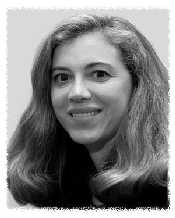When do you reveal your religion to sources?

By Julia Lieblich
Chicago Tribune*
Several years ago, I spent time with a Jehovah’s Witness family in Tennessee, hanging out with a mother and her children during home schooling, church services and door-to-door proselytizing. I didn’t tell the family about my faith, and I was relieved the subject never came up.
Until the last day.
“I just know you’re going to become a Witness,” the mother told me. “And I know we’ll be great friends.” She suspected I was Jewish, and she was worried.
Most religion writers eventually encounter sources who believe their souls need saving or at least improving. And most have their own informal rules on when and how much to reveal about their own religious roots and deeply held beliefs.
I don’t rule out talking about my faith. But when sources inquire, I try to figure out why they care.
An evangelical Christian friend said to me recently, “We’re just curious.” But some sources are clearly trying to determine whether I need to be saved-and whether they need to step up their efforts during the course of an interview.
Some reporters think stating their religion with conviction is the best way to end the conversation.
At these times, I rely on the advice a religion writer offered several years ago. When asked, “Are you a Christian?” the writer replied: “I don’t like to talk about my religion when I am working. But if you are wondering whether I will be sensitive to the beliefs of Christians, the answer is yes.”
I like that response because it helps ease the fears of a source who may feel the press tends to be dismissive of fundamentalist and evangelical Christians, and that it conveys the message that this may not be a good time to evangelize.
This kind of response is particularly valuable for reporters whose atheist or agnostic beliefs would elicit a strong reaction from some believers.
Another possibility is that sources want to see if they can trust me because we share a common heritage or set of beliefs-or distrust me if we don’t. Again, I avoid discussing my own tradition in such cases. I try to reassure people I know something about their religion and am concerned about conveying their point of view.
But with a name like Lieblich, many people just assume I’m Jewish. And some Muslims had to read several of my stories about Islam before they were comfortable talking to me.
For me, the most challenging situations arise when sources are less interested in my religious belief than in whether I share their political views. I recently interviewed Palestinian supporters of Hamas, and I was relieved when they didn’t ask me about my religion.
Still, there are many moments I do talk about my faith, usually when a story stems from a conversation about theology or politics, and often when it involves scholars or religious leaders with experience in interreligious activities.
When I am writing a profile, I am much more likely to share my own religious experience, particularly when I think it will help the subject reflect on her experience.
In the end, it’s the evenhandedness of one’s reporting that sets the tone for interviews more than whether one identifies with a particular group.
Even in a city the size of Chicago, the most prominent religious leaders seem to know I’m Jewish. And in my Christmas column, I mentioned that I’m a Jewish godmother to a Catholic godson because it was relevant to the story.
My coming out proved uneventful. I got one letter from a reader telling me godmothers can’t be Jewish.
*This article was written in 2001, at the time Julie Lieblich was writing for the Chicago Tribune. Lieblich is now an assistant professor of specialized journalism at Loyola University in Chicago.
